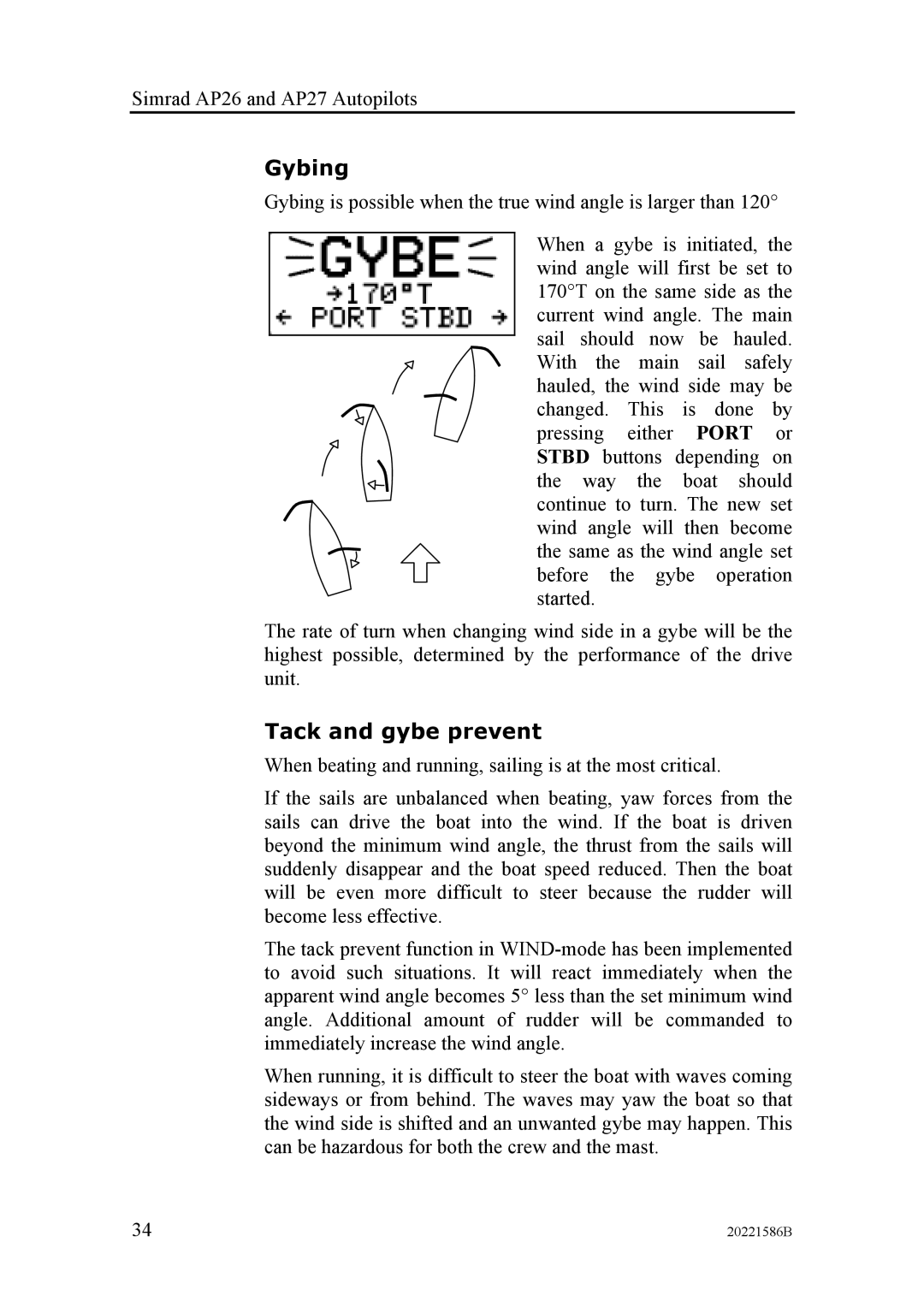
Simrad AP26 and AP27 Autopilots
Gybing
Gybing is possible when the true wind angle is larger than 120°
When a gybe is initiated, the wind angle will first be set to 170°T on the same side as the current wind angle. The main sail should now be hauled.
With the main sail safely hauled, the wind side may be changed. This is done by pressing either PORT or
STBD buttons depending on
the way the boat should
continue to turn. The new set
wind angle will then become
the same as the wind angle set before the gybe operation started.
The rate of turn when changing wind side in a gybe will be the highest possible, determined by the performance of the drive unit.
Tack and gybe prevent
When beating and running, sailing is at the most critical.
If the sails are unbalanced when beating, yaw forces from the sails can drive the boat into the wind. If the boat is driven beyond the minimum wind angle, the thrust from the sails will suddenly disappear and the boat speed reduced. Then the boat will be even more difficult to steer because the rudder will become less effective.
The tack prevent function in
When running, it is difficult to steer the boat with waves coming sideways or from behind. The waves may yaw the boat so that the wind side is shifted and an unwanted gybe may happen. This can be hazardous for both the crew and the mast.
34 | 20221586B |
